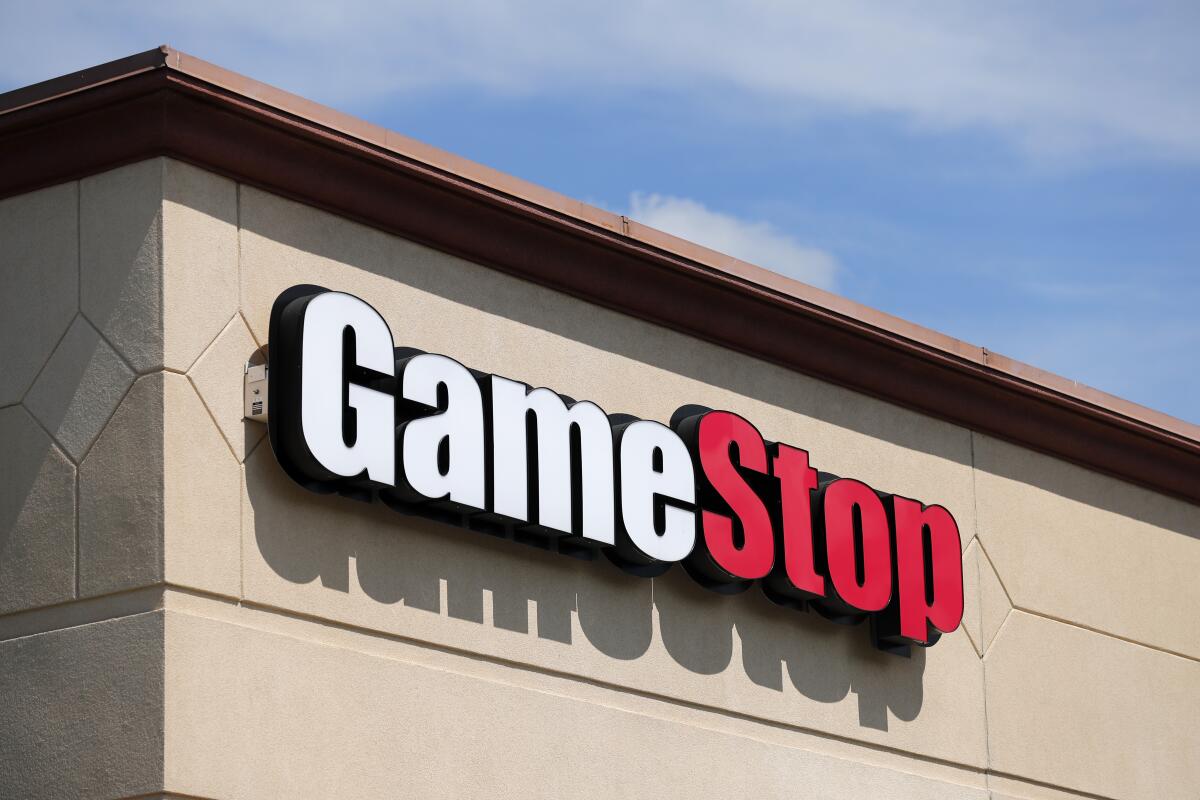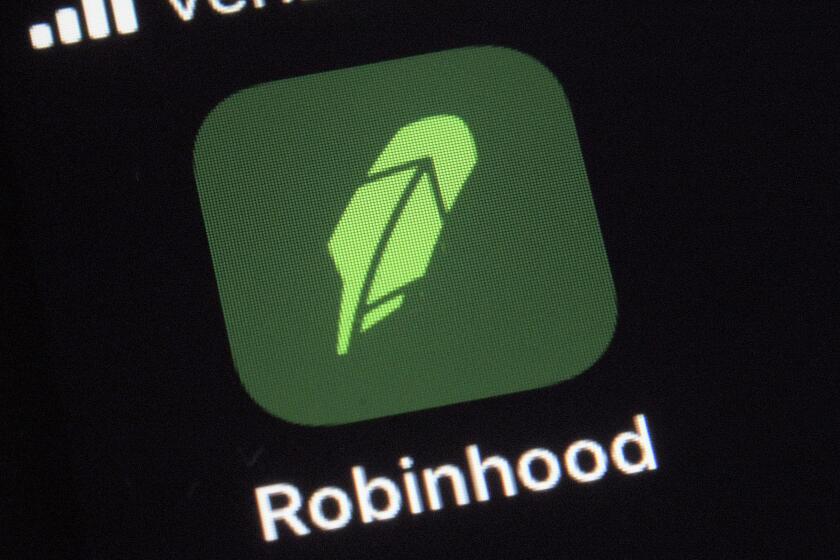SEC GameStop report debunks conspiracies, backs commission chief’s plan

- Share via
A highly anticipated U.S. Securities and Exchange Commission report on January’s frenzied GameStop Corp. trading debunked some conspiracy theories that have swirled around social media for months and adds momentum to Chair Gary Gensler’s push to toughen rules.
The 44-page document — released Monday — details the SEC’s assessment of one of the most remarkable periods of the pandemic economy, when retail traders took on Wall Street and sent shares of GameStop and other meme stocks into the stratosphere.
Agency officials didn’t offer specific policy recommendations, but they did say the episode warrants a close look at factors that prompt brokers to restrict customer trading, video-game-like features popularized by online trading platforms, short-selling and payment for order flow. All are areas in which Gensler has said the SEC might have to strengthen regulations as part of an aggressive agenda that’s likely to ensnare hedge funds, Robinhood Markets Inc., Citadel Securities and other firms.
A key narrative of the GameStop incident is that an army of retail traders set off a massive short squeeze by driving up stocks that hedge funds were betting against. They did so by flooding the market with purchase orders, forcing the hedge funds to also have to buy shares to cover their shorts, pushing GameStop even higher.
Some were just in it for the money. Others saw a chance to stick it to Wall Street. Between them, they made GameStop the latest symbol of chaotic internet-fueled change.
Yet the SEC said that story isn’t entirely backed up by the evidence. GameStop purchases by those covering shorts were “a small fraction of overall buy volume” and the company’s share price remained high even after the direct effects of such trades should have waned, according to the regulator.
“The underlying motivation of such buy volume cannot be determined,” the SEC said. “Whether driven by a desire to squeeze short sellers and thus to profit from the resultant rise in price, or by belief in the fundamentals of GameStop, it was positive sentiment, not the buying-to-cover, that sustained the weeks-long price appreciation of GameStop stock.”
Perhaps the biggest victim of bullish investors banding together on Reddit and other social media platforms to push GameStop higher was Gabe Plotkin’s Melvin Capital. The hedge fund had a big short on GameStop, and its January losses led to the firm getting a $2-billion cash infusion from Ken Griffin’s Citadel and roughly $750 million from Steve Cohen’s Point72 Asset Management. Still, the SEC said the hedge funds mostly emerged from the situation unscathed.
“Staff believes that hedge funds broadly were not significantly affected by investments in GME and other meme stocks,” the regulator said in its report. “Staff did not observe that any advisors to private funds and registered funds experienced liquidity issues or difficulties with counterparties.”
One hotly debated topic also addressed in the SEC report, albeit less definitively, is whether hedge funds pushed Robinhood to restrict customers from adding to their GameStop positions in late January as the stock was surging.
Robinhood CEO Vlad Tenev said the brokerage halted trades to meet demands from its clearinghouse -- not to protect hedge funds from retail investors rallying each other on Reddit.
Robinhood has repeatedly argued that it halted buy orders because of demands from its clearinghouse that it post more capital to deal with the heightened risk. The issue was a top focus when Robinhood Chief Executive Vlad Tenev faced a barrage of questions from lawmakers during a House hearing in February.
In its report, the SEC did note that clearinghouses demanded billions of dollars in additional margin from member firms and that brokers temporarily barred clients from purchasing additional shares.
The document listed four areas that the SEC believes need additional study.
- Factors that may prompt brokers to restrict trading: The SEC said the wild GameStop trading raises questions about thinly capitalized brokers’ ability to meet margin calls. The SEC said such risks could be mitigated by shortening settlement cycles for trades.
- Digital engagement practices and payment for order flow: The SEC questioned whether payment for order flow incentivizes online brokers to incorporate game-like features into their apps to increase customer trading.
- Dark pools and market makers: The SEC may review the effect that market makers such as Citadel Securities and Virtu Financial Inc. have on the market and the trade execution that retail customers receive. Such firms paid brokers for the right to handle many of the GameStop orders, and they also execute a lot transactions themselves rather than sending them to stock exchanges.
- Short selling: The SEC said increased disclosure of bearish bets on stocks would help regulators better track market dynamics.
“January’s events gave us an opportunity to consider how we can further our efforts to make the equity markets as fair, orderly, and efficient as possible,” Gensler said in a statement accompanying the report.
The SEC chief has signaled that he plans to take up many of the issues raised in the document. Notably, the agency has signaled that it may propose rules by April targeting payment for order flow and the market dominance of firms that execute orders. It also just finished collecting public comments on brokers’ digital engagement practices.
The SEC’s two Republican commissioners, Hester Peirce and Elad Roisman, questioned the report, arguing that few “conclusions can be drawn from the data.” In a statement, they said they’ve seen no evidence that payment for order flow or off-exchange trading caused the meme-stock frenzy.
“This report should have been an anodyne report on the events of earlier this year and, if evident from the data, an assessment of the causes of those events,” the GOP members of the SEC wrote. “Surprisingly, the report turned into an account of those events awkwardly intertwined with discussions of market practices and policies that mirror commission-level conversations unrelated to the specifics of January’s events.”







